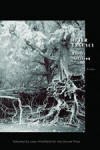After Urgency
Many of the meditations in Rusty Morrison’s After Urgency—selected by Jane Hirshfield for the Dorset Prize—arise from nature where the poet comforts herself after the loss of her mother and father (“‘My dead,’ I’ve begun to call them”), who died only a season apart. How, now, to “live past” their deaths? How to go on; “how to stand still?” In “Appearances,” Morrison’s melancholy goes unanswered by the landscape: “Tree-line, water’s edge, places that borders will gather against. / What a body might verge upon, it can neither tame nor test.”
Many of the meditations in Rusty Morrison’s After Urgency—selected by Jane Hirshfield for the Dorset Prize—arise from nature where the poet comforts herself after the loss of her mother and father (“‘My dead,’ I’ve begun to call them”), who died only a season apart. How, now, to “live past” their deaths? How to go on; “how to stand still?” In “Appearances,” Morrison’s melancholy goes unanswered by the landscape: “Tree-line, water’s edge, places that borders will gather against. / What a body might verge upon, it can neither tame nor test.”
But, to Morrison’s intense gaze, nature’s “patternless order” that exists despite her grief holds lyrical solace (“A tightening sky teaches precision”).
In Greek myth, death—the underworld—is a kingdom, a place with borders and coordinates. In After Urgency Morrison tells us that if death is a border, then grieving exists between borders. Grief is a “friction” like her mother’s scarf: “As the past’s frequency and the future’s finality—the always / and the never again of my mother wearing her scarf—coexist here.” After Urgency is Morrison’s struggle to live in the present (“I try to walk lighter, while still occupying each step”) even as her mind flicks over and over the details of death and her loss. “Birth certificates, marriage license, news clippings, unfold only a little landscape,” she writes. Just as “In certain dusks, trees turn the smoky white of inherited furniture.”
Grief is waiting (“Yes, as though impossibility / . . . were at the end of all this waiting,” wrote Maurice Blanchot, whom Morrison cites in the epigraph to her book). And when one waits, Morrison writes, one’s mind “attunes.” Morrison’s beautifully crafted lines can freeze a pinprick of an instant—the wind on her earlobe, the ant suddenly on her arm, or the invisible movements of hummingbirds—just as she can give shape to logic or philosophy. (Often, her lines do both: “The yellow striation in wild irises is a wild I can’t narrate.”) Sorrow lends Morrison an “aroused sentience” as she walks through her landscape (“a dormitory of day-walking”) to see and be seen:
An attentiveness can excavate,
rather than fill,
the depths of its five senses.
An ear, as a cavity, might attune to its own
empty space, and thereby grow more familiar
with the resonances in other absences.
Here, her breath, her voice, and even her “quieting hand” interact with her environment just as the wind would. “I say ‘Father,’ the view roughens in reply. // I say ‘Mother,’ and the sandy shoal underfoot tosses and flows, schools of startled minnows.” A rabbit she encounters “fix[es] his stare to [her] stare.” Her need is to “fix on thing after thing,” Morrison realizes, “As though it would fall / to me to keep the world substantive and by sighting / upon it, hydrated.”
The structure of After Urgency mirrors Morrison’s preoccupation with how she “might live death all the way to the edge of its form.” Often Morrison’s long lines push against the margins (“Margins can be un-generous—the false calm / a trespassing body might take as welcome”). Sometimes her lines are padded in white space; others, often in the same piece, pool at the middle of the page. A collection of serial poems, After Urgency shuffles sections so that the poems “imbricate” (“Do our senses imbricate to offer us a wing of ascent?”) as form recalls Morrison’s layered observations.
For grief is also porous. When Morrison walks through the woods, through a subway car or through her own kitchen, the openness of her perceptions—their sudden “charges,” their quick pivots between outer and inner life—shocks the reader into her own trance of heightened attention. Each word becomes an “iconic ridge” for the reader to notice. Still, the boundaries between senses, between external and internal landscapes, between grief and experience, between Morrison’s observations and my own as I walk through these elegies, become blurred if not erased: “A lung may listen with more acuity / than an ear; a thing’s function / can obscure its worth.”





